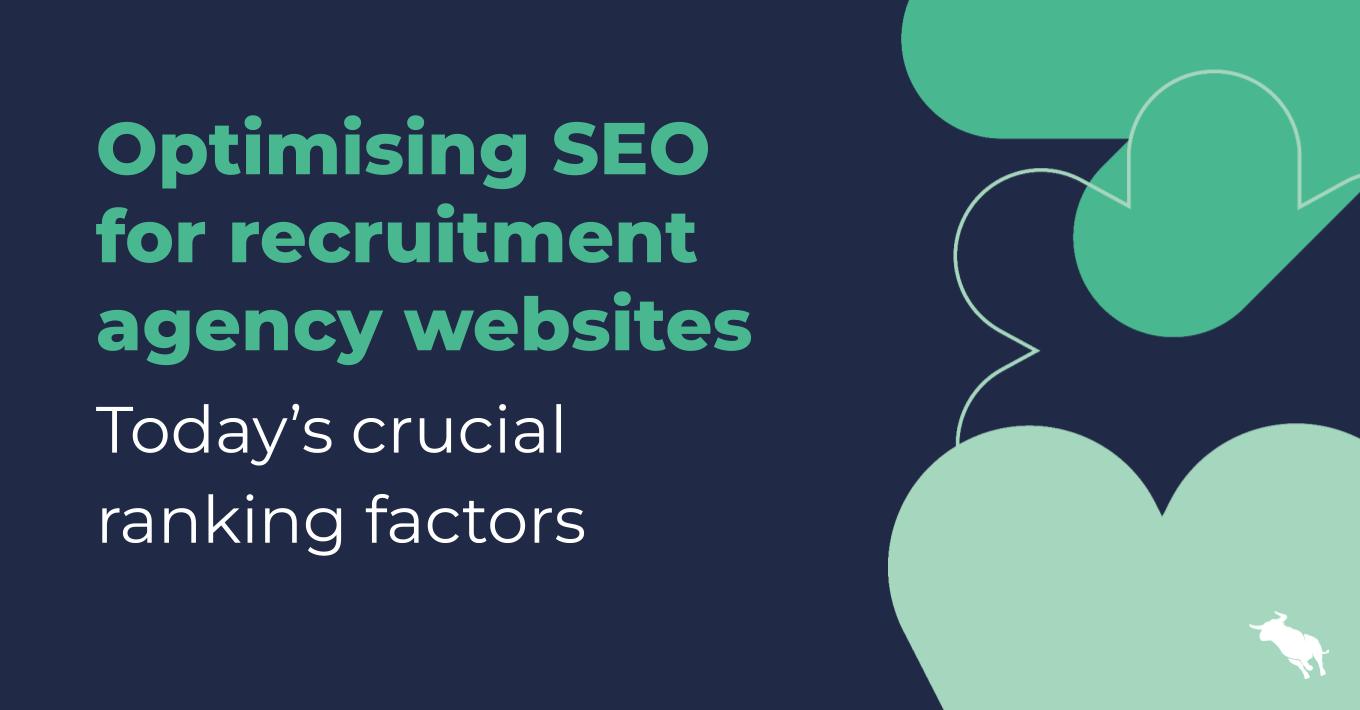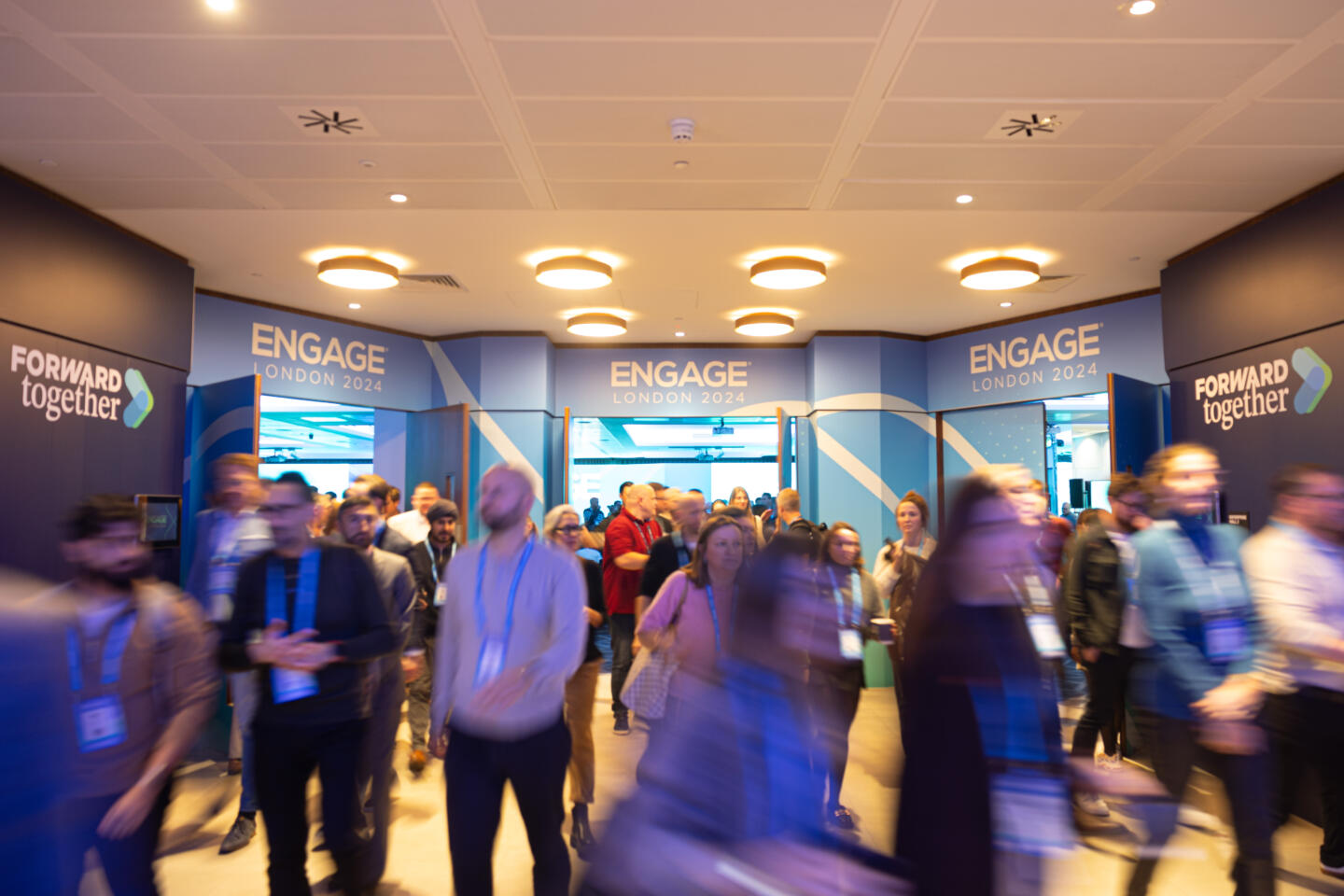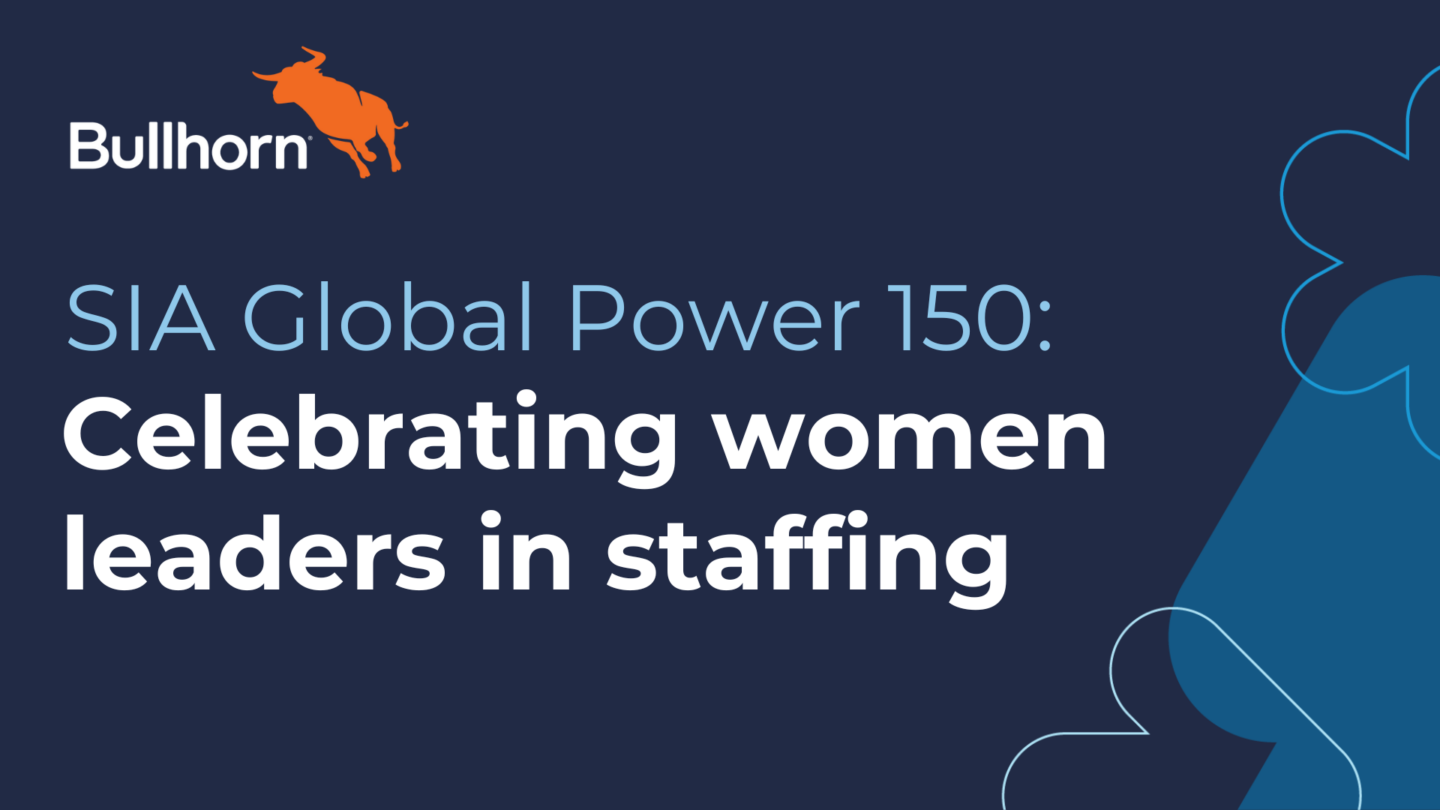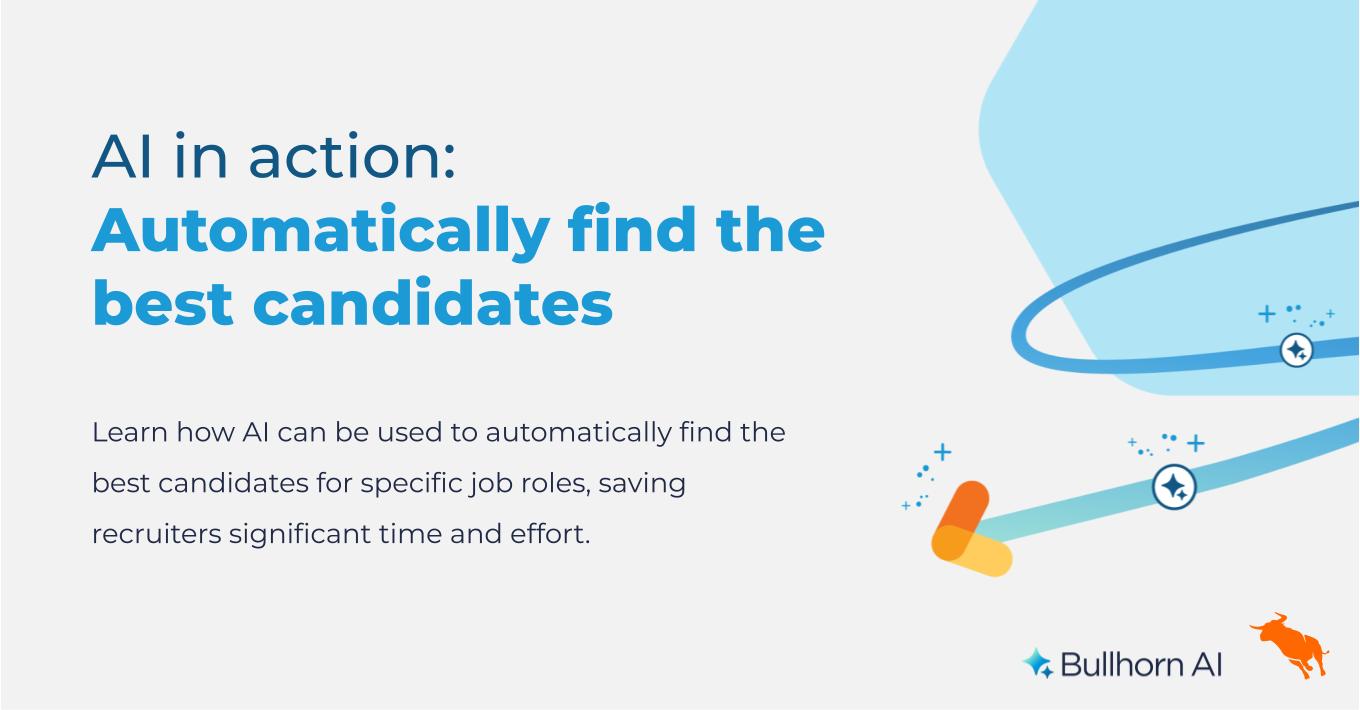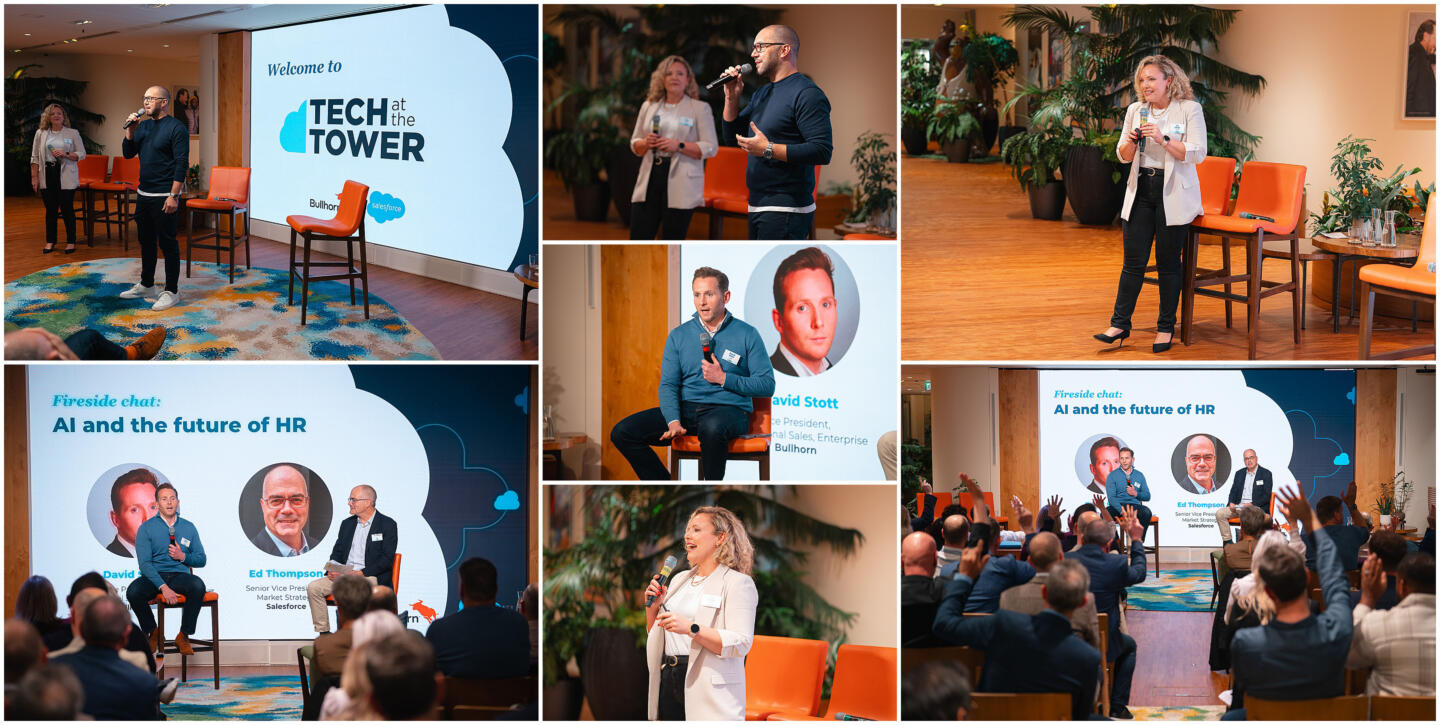How do you really engage with Gen Z talent?
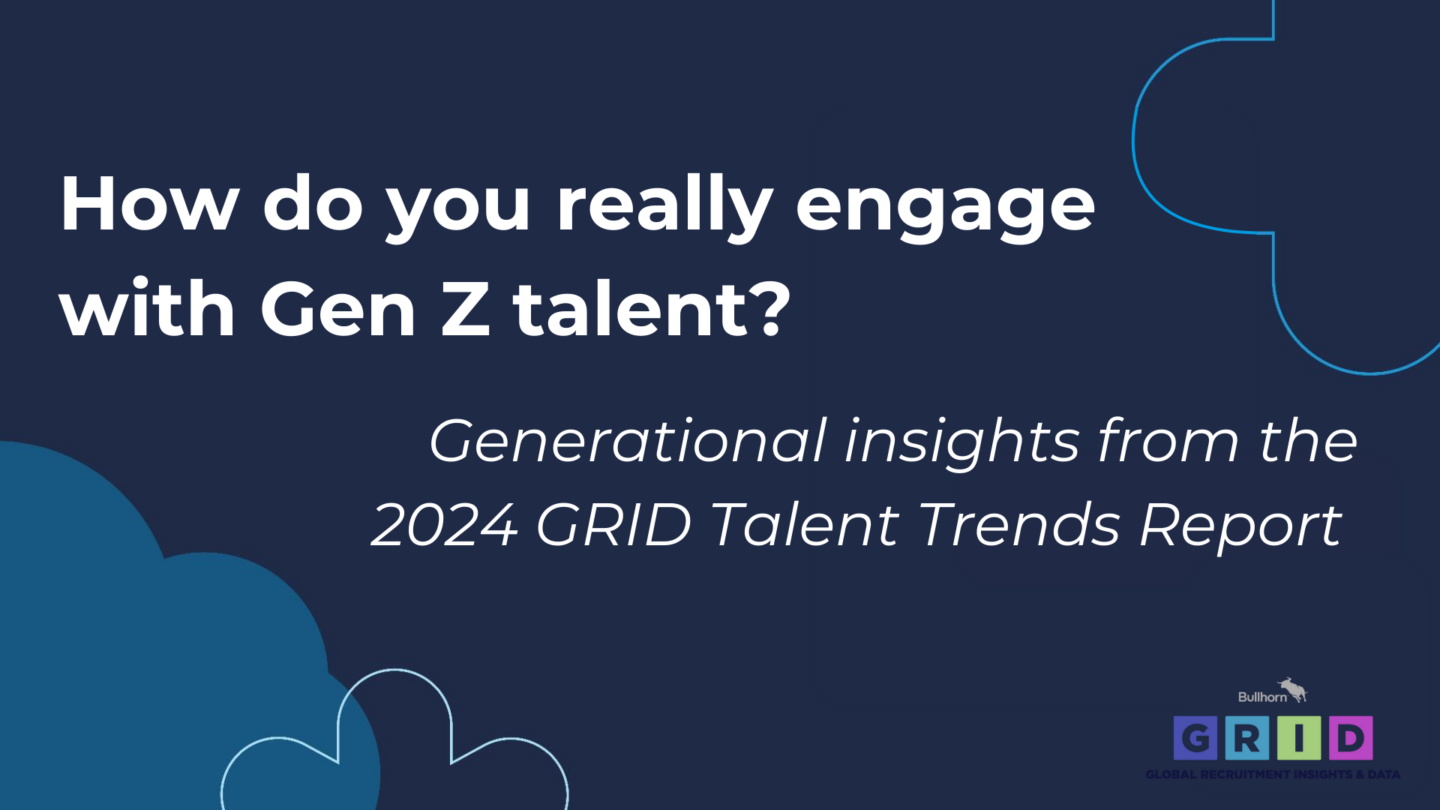
As part of Bullhorn’s 2024 GRID Talent Trends Report, we surveyed nearly 2,500 people who have worked with recruitment agencies in the last five years on their attitudes on the recruitment process, working with recruitment agencies, the use of AI in hiring, and more. Some of their differences in opinion varied across generational lines – and in surprising ways.
Younger candidates need more deliberate engagement and support
Gen Z candidates are less likely to work with recruiters, less loyal to recruitment agencies, and more likely to be overwhelmed by the process. This may simply be because they are newer to the working world, but it may also be because they need to be engaged and supported in a different way than the generations before them.
For example, when candidates who were dissatisfied with their recruitment experience were asked where the process broke down, 46% of Gen Z candidates were unclear on the steps to follow to apply to jobs and 39% felt there wasn’t enough communication in the interview process. By contrast, the top reasons for dissatisfaction among Gen X and Millennial candidates related to the application process being too long and the interview process being too slow. Agencies looking to engage Gen Z candidates may need to think about ways to better map out recruitment processes and support them every step of the way.
Gen Z is the least likely to work with recruitment agencies
Only 34% of Gen Z candidates choose to work with recruitment agencies as they look for jobs, as opposed to 43% of Millennials and 56% of Gen X candidates. This may reflect their career stage, or it may be that older candidates are less comfortable with online recruitment resources. But it does offer an opportunity to engage the remaining two-thirds of younger talent by marketing recruitment services to them in ways and channels that specifically target them.
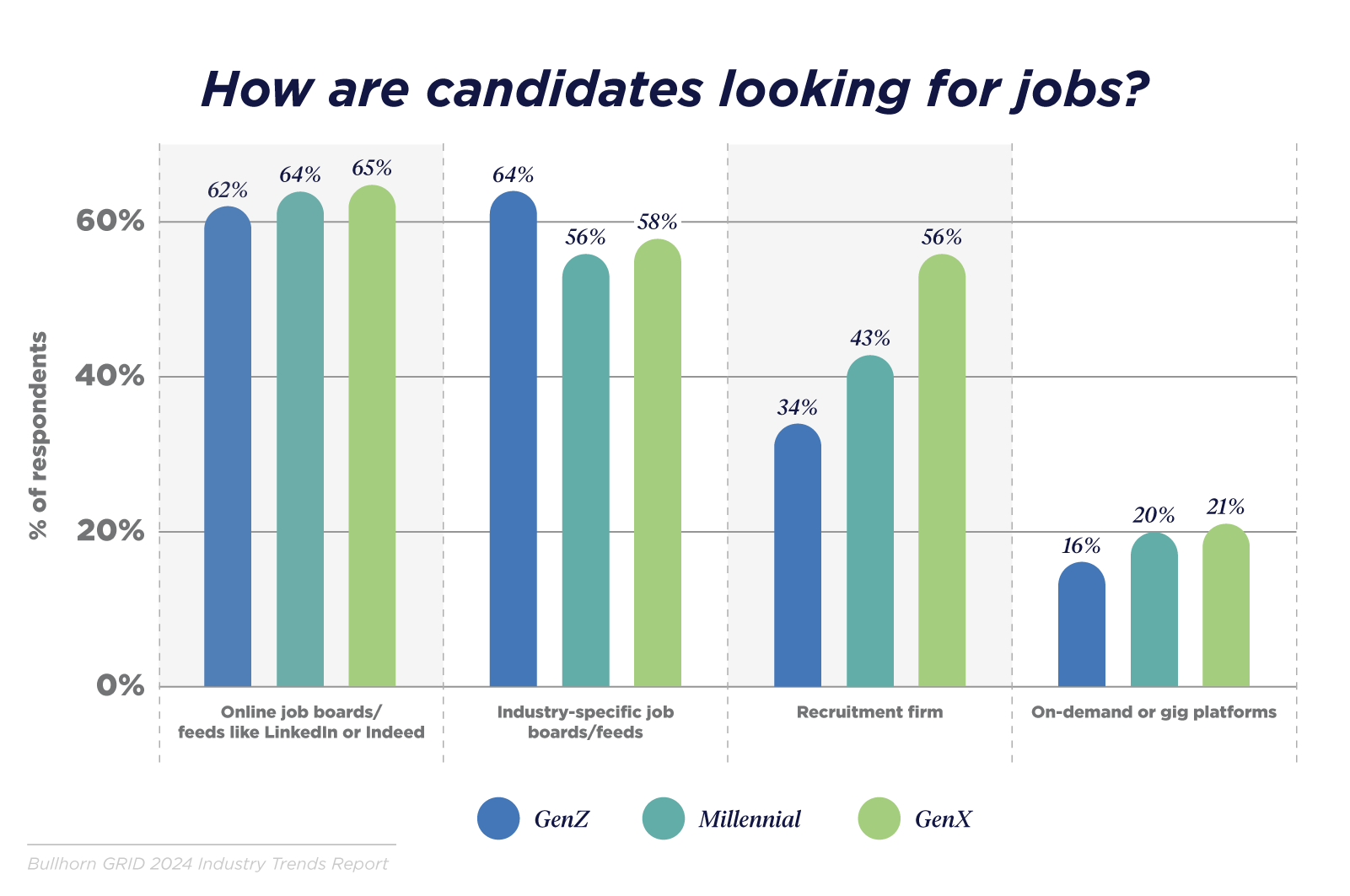
Like their older counterparts, Gen Z candidates rank finding the right job and faster placement as their top priorities. These expectations provide an opportunity for recruiters to prove their value compared with online job boards or gig platforms. And delivering an excellent recruitment experience could mean keeping talented, young candidates in your database for literally decades.
Communication and speed drive candidate loyalty for all generations
Candidate loyalty increases with age, with Gen X employees being the most likely to continue working with their current recruitment agency.
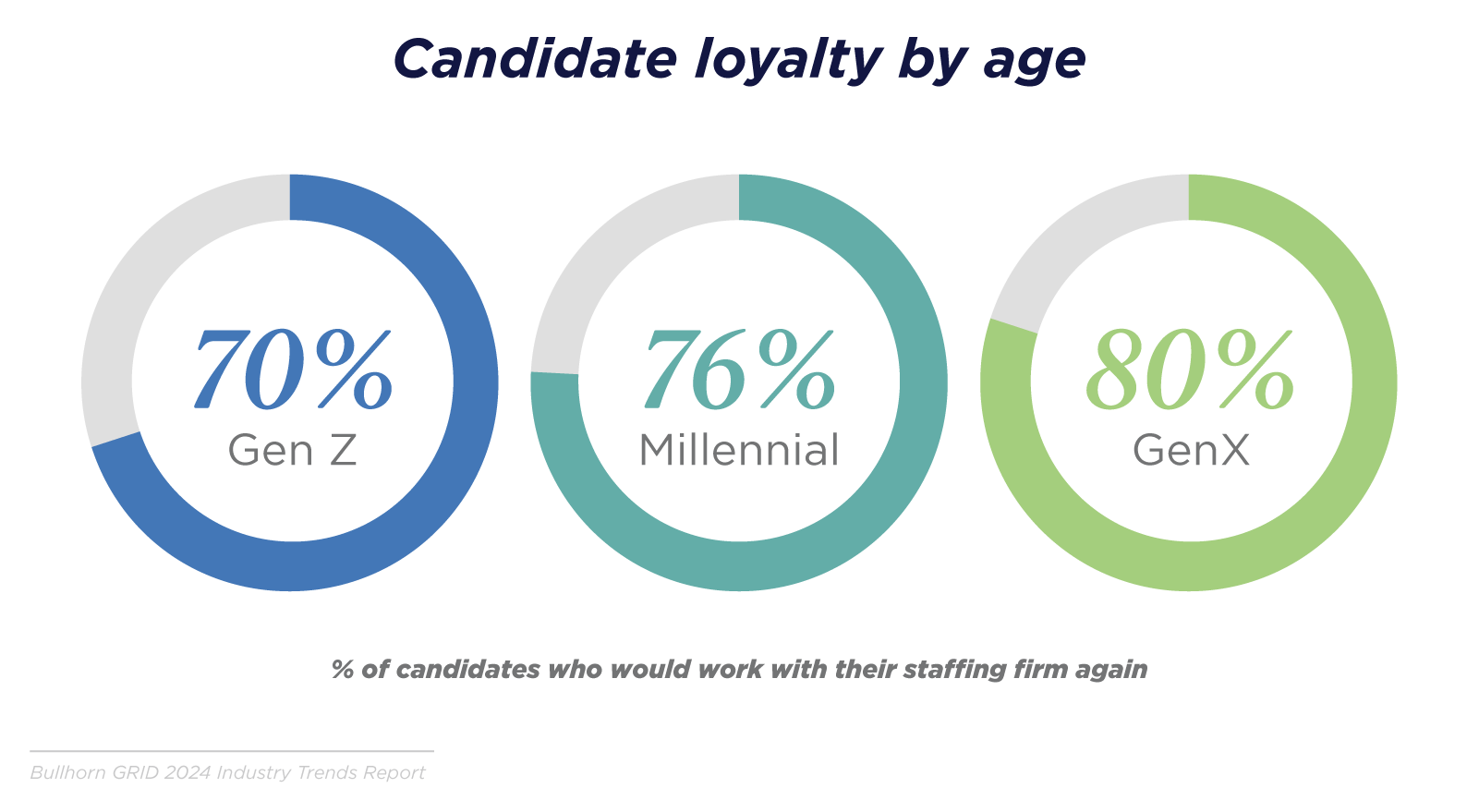
These numbers aren’t bad, but there are a number of easy levers to pull to drive up the number of candidates who would keep working with your agency — and the good news is that they are all well within your control.
For Gen Z, the biggest boost comes when recruitment agencies offer reskilling or upskilling programs and they take advantage — 83% of these candidates would keep working with the same agency. And communicating more than once a week drives Gen Z loyalty up to 82%.
Millennials also respond well to communication more than once a week and reskilling programs, with 89% candidate loyalty for each. But they also really value redeployment efforts, with 87% loyalty among candidates who said their recruiters reached out with potential new assignments before their last one had ended.
Gen X candidates saw the biggest leaps in loyalty in response to recruiter actions in a number of areas. 93% would continue working with a recruitment agency when they receive communication more than once a week, 90% if they are offered new assignments before the last one has ended, 86% if onboarding is automated, and 87% if they are satisfied with job fit.
The message is clear: candidates want frequent communication, the opportunity to enhance their careers, and easy processes. Gen Z may offer the greatest opportunity for candidate engagement as they start at the lowest baseline for loyalty to their agency.
Comfort with AI actually increases with age
Older candidates are more likely to know that their recruiters are using AI-powered tools and agents in their job search, and they are very willing to take advantage of these tools if it gets them in the right jobs, faster.
84% of Gen X candidates are willing to work with an AI-powered recruiting assistant if it speeds up the process — as opposed to 82% of Millennials and 79% of Gen Z. And they report that they are already seeing the value of AI in their recruitment experiences. Again, this increases with age.
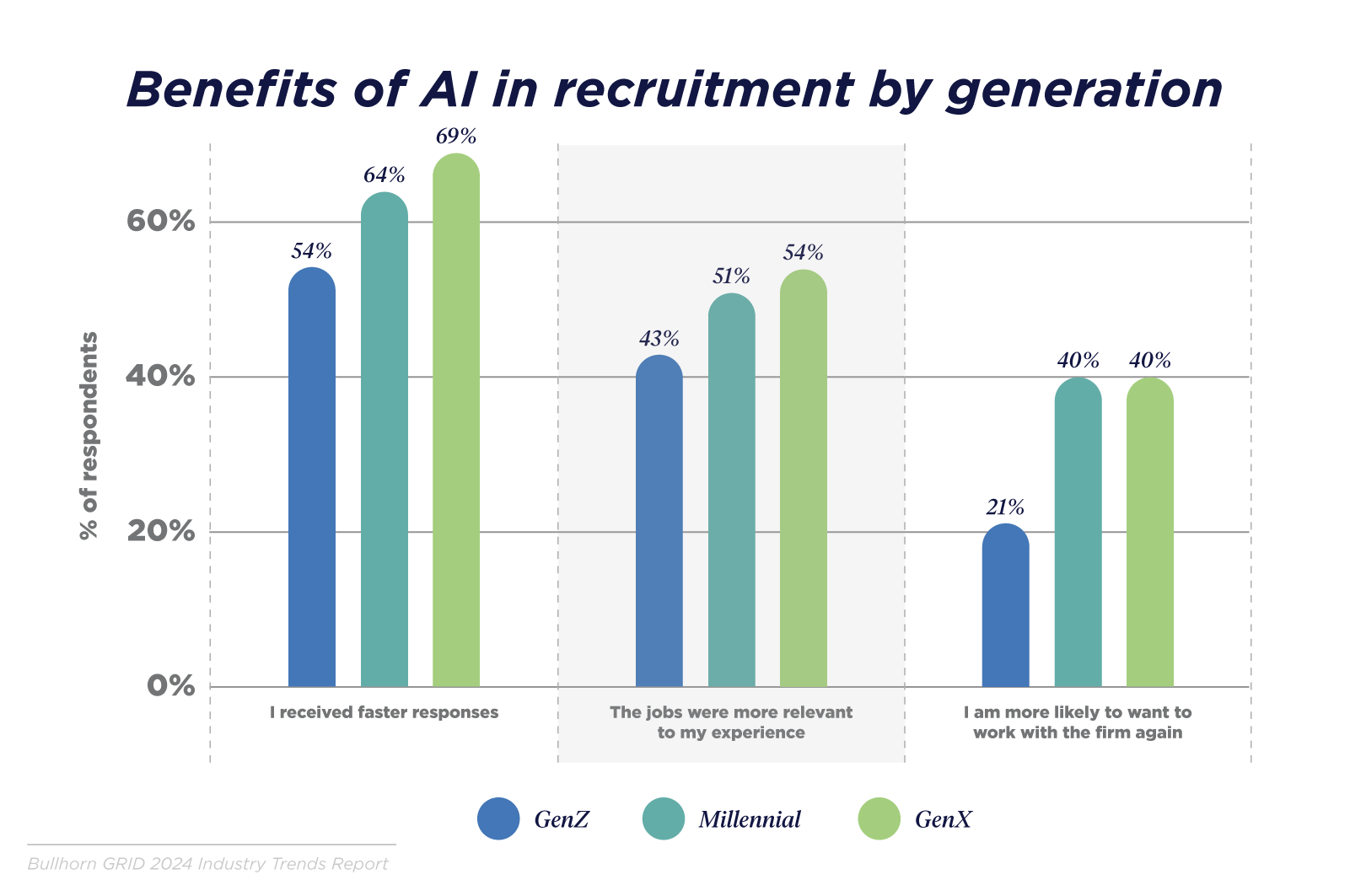
Across the board, comfort with AI in recruiting rises with age — good news since AI is likely to be the single most effective way to deliver the placement speed and process optimisation that candidates want.
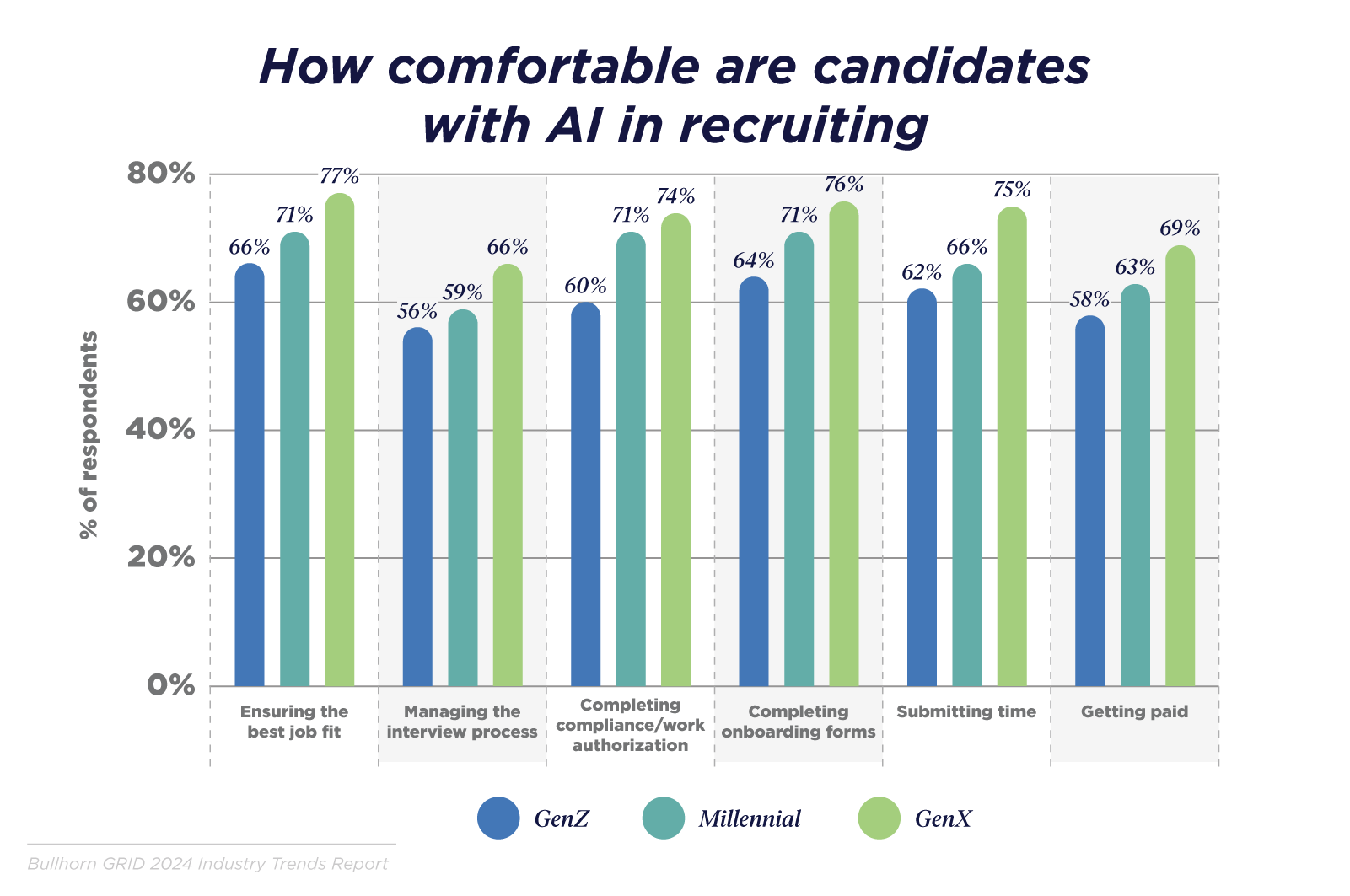
Overall, the survey responses show that Gen X candidates in particular are willing to use whatever tool gets them placed faster and more accurately. For both Gen X and Millennials, the top priorities are delivering value and providing what they need. Interestingly, Gen Z candidates, although still largely comfortable with AI, are more hesitant than older candidates. Perhaps growing up with so many online tools has made them wary — or perhaps it means they have higher standards for what AI needs to provide in order to deliver real value.
Either way, the agencies that think about these generational differences as they work with candidates, and especially as they deploy more AI-powered tools and agents, are the ones that stand to gain the greatest competitive advantage.
Learn more about AI-powered recruiting by visiting bullhorn.com/ai.
